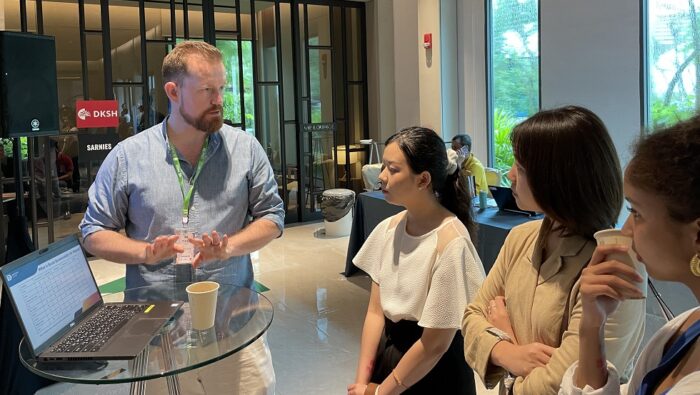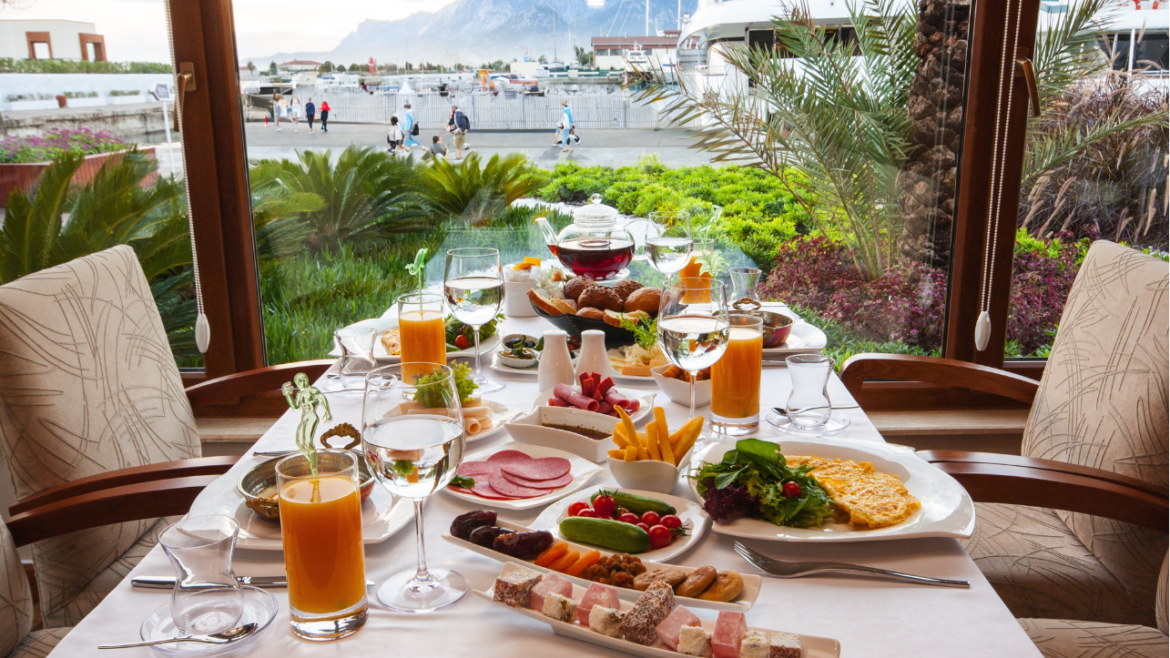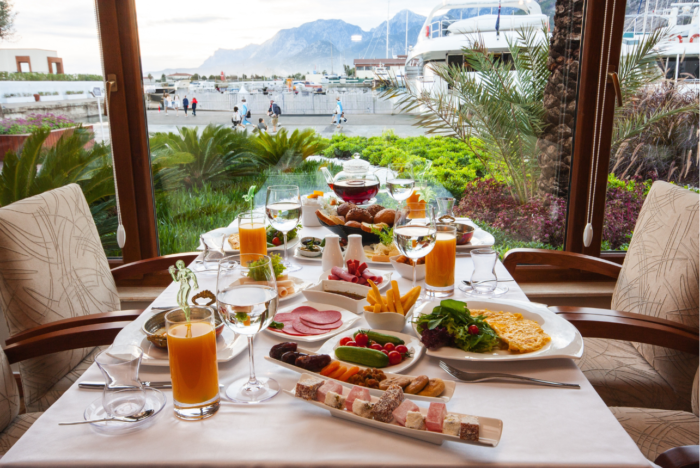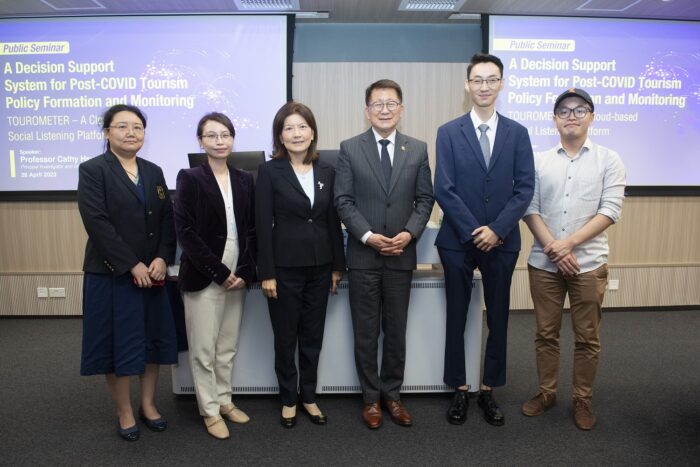Dusit Thani College Shares Ideas and Knowledge on Sustainability at PHIST 2023
https://www.travelfoundation.org/wp-content/uploads/2023/09/dusit-thani-college-shares-ideas-and-knowledge-on-sustainability-at-phist-2023.jpg 980 553 wttc2 wttc2 https://secure.gravatar.com/avatar/8ceb3c33b6d7e246ff938130ace90a65?s=96&r=g
 Dusit Thani College, Thailand’s leading hospitality education institution under the Dusit Thani Hotel Group, has annually participated in the PHIST or Phuket Hotels for Islands Sustaining Tourism event, which this year was recently held at SAii Laguna Phuket Hotel.
Dusit Thani College, Thailand’s leading hospitality education institution under the Dusit Thani Hotel Group, has annually participated in the PHIST or Phuket Hotels for Islands Sustaining Tourism event, which this year was recently held at SAii Laguna Phuket Hotel.
PHIST is an innovative event rallying the hotel industry and its stakeholders to discuss environmental sustainability and community benefit. It is a collaboration between the Phuket Hotels Association, Greenview and C9 Hotelworks. On this occasion, Dusit Thani College, led by Simon David Lloyd, Executive Dean Hospitality Management and John Lohr, Executive Director of External Affairs, along with international students from the Hospitality Management and Professional Culinary Arts programs hosted a workshop titled “Engaging with Education to Deliver Social Sustainability and Develop, Retain your Talents” which was tell attended by GMs and industry partners of the Phuket Hotel Association.
In the program Simon and John discussed the direction that education is heading in and how employers can engage with education providers, like Dusit Thani Collete to equip and inspire faculty and students with the latest trends and innovations in hospitality. The session also highlighted the potential opportunities for hospitality operators to secure a sustainable skilled workforce while at the same time, delivering meaningful impacts to the communities within they operate.
The presentation was enhanced by a panel of Dusit Thani College students from the Professional Culinary Arts and Hospitality Management programs who shared their opinions of why they chose to study hospitality, what career they are looking for and what they look for in future employers which was well received by the audience. The presentation then ended with an information session for the new Dusit Hospitality Academy, a skill based, short course training program designed to deliver real world practical skills and knowledge to enable career starters, switchers or climbers to join or advance in the hospitality industry.
Simon and John also participated and led discussions with students and youth from Phuket schools and universities hosted by Lecturers from Prince of Sonkla University where they inspired young students to brainstorm ideas on how they can bring more sustainable practices to hotels on Phuket Island.
In addition to the workshop Simon and John networked with hospitality companies, healthcare providers and world organizations such as the World Travel and Tourism Council and PATA to further build the College’s connections with the wider hospitality industry and to make other collaborations in the future.
First published at TravelNewsHub.com – Global Travel News













 Many organisations take pride in their ability to offer a rich variety of supportive programmes for employees with families. However, the growing number of single childless people in the workforce, especially members of Generations Y and Z, rarely benefit from equivalent perks or policies. Does the hospitality industry care about single childless employees? Curious as to whether organisational support can benefit hotels and their employees, Dr Xiaolin (Crystal) Shi of the School of Hotel and Tourism Management (SHTM) at The Hong Kong Polytechnic University and her co-author quizzed hotel employees in China about their experiences. The fruits of their comprehensive analysis will help organisations to create more supportive environments for employees, whilst also boosting hotel outcomes.
Many organisations take pride in their ability to offer a rich variety of supportive programmes for employees with families. However, the growing number of single childless people in the workforce, especially members of Generations Y and Z, rarely benefit from equivalent perks or policies. Does the hospitality industry care about single childless employees? Curious as to whether organisational support can benefit hotels and their employees, Dr Xiaolin (Crystal) Shi of the School of Hotel and Tourism Management (SHTM) at The Hong Kong Polytechnic University and her co-author quizzed hotel employees in China about their experiences. The fruits of their comprehensive analysis will help organisations to create more supportive environments for employees, whilst also boosting hotel outcomes.







 Contactless technology is transforming hospitality in China and beyond. Research by Dr Fei Hao and Professor Kaye Chon of the School of Hotel and Tourism Management (SHTM) at The Hong Kong Polytechnic University shows that travellers have varying levels of readiness for contactless hotels. Hospitality firms are advised to be mindful of this variation when designing strategies to boost customer equity. For guests who are still sceptical about contactless technology, services that evoke delight may be the best way to retain their custom. Those with concerns around COVID-19 may be particularly reassured by positive experiences in a contactless hotel.
Contactless technology is transforming hospitality in China and beyond. Research by Dr Fei Hao and Professor Kaye Chon of the School of Hotel and Tourism Management (SHTM) at The Hong Kong Polytechnic University shows that travellers have varying levels of readiness for contactless hotels. Hospitality firms are advised to be mindful of this variation when designing strategies to boost customer equity. For guests who are still sceptical about contactless technology, services that evoke delight may be the best way to retain their custom. Those with concerns around COVID-19 may be particularly reassured by positive experiences in a contactless hotel.
 COVID-19 has changed how we holiday: out with crowding into airports to fly to distant resorts; in with staying close to home. Although this might seem an effective way to support local tourism while containing the virus, research by Ph.D. student Mr Wilson Au, Dr Nelson Tsang and Dr Clare Fung of the School of Hotel and Tourism Management (SHTM) at The Hong Kong Polytechnic University reveals a downside of “staycationing”. In Hong Kong, many holidaymakers confined to local hotels during the pandemic have begun to behave badly, taking a toll on staff’s mental health. This timely study highlights the need for hotels to remove incentives for staycationers to cause trouble and create an environment that brings out the best in guests.
COVID-19 has changed how we holiday: out with crowding into airports to fly to distant resorts; in with staying close to home. Although this might seem an effective way to support local tourism while containing the virus, research by Ph.D. student Mr Wilson Au, Dr Nelson Tsang and Dr Clare Fung of the School of Hotel and Tourism Management (SHTM) at The Hong Kong Polytechnic University reveals a downside of “staycationing”. In Hong Kong, many holidaymakers confined to local hotels during the pandemic have begun to behave badly, taking a toll on staff’s mental health. This timely study highlights the need for hotels to remove incentives for staycationers to cause trouble and create an environment that brings out the best in guests.